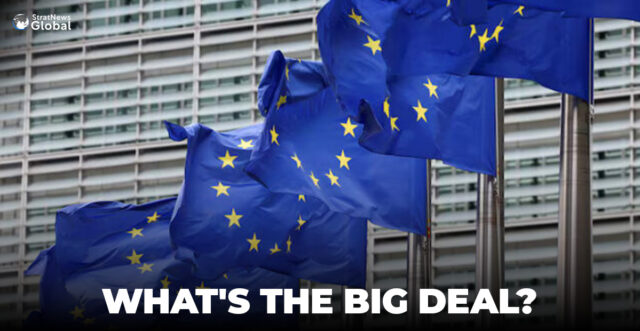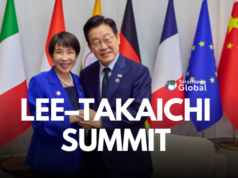The European Union is expected to formally present a long-awaited trade agreement with South America’s Mercosur bloc on Wednesday, with the European Commission set to propose the deal for approval by the EU Parliament and member states.
Mercosur will remove duties on 91% of EU exports, including for cars from a current 35% over a period of 15 years. The EU will progressively remove duties on 92% of Mercosur exports over a period of up to 10 years.
Mercosur will also remove duties on EU agriculture-based products, such as the 17% on wines and 20-35% on spirits.
For more sensitive farm products, the EU will offer increased quotas, including 99,000 metric tons more beef, while Mercosur will give the EU a duty-free 30,000-ton quota for cheeses.
There are also EU quotas for poultry, pork, sugar, ethanol, rice, honey, maize and sweet corn and for Mercosur on milk powders and infant formula.
Further, the deal recognizes 350 geographic indications to prevent imitation of certain traditional EU foodstuffs such as Parmigiano Reggiano cheese.
Alternative Routes
The Commission and proponents like Germany and Spain say the deal offers a route away from reliance on China, especially for critical minerals, and relief from the impact of tariffs imposed by U.S. President Donald Trump.
The Commission says the free trade agreement is the largest it has ever agreed in terms of tariff reductions, removing over 4 billion euros ($4.7 billion) of duties on EU exports annually, and a necessary part of the EU’s push to diversify its trade ties.
Early-Mover Advantage
The EU says that given Mercosur’s modest collection of trade agreements, the EU would have an early-mover advantage and notes that EU companies will be able to bid for public contracts in Mercosur on the same terms as local suppliers – something Mercosur has not previously offered in trade agreements.
The EU also sees Mercosur as a reliable partner as it seeks to reduce its reliance on China for critical minerals, such as battery metal lithium. The agreement will ensure there are no taxes on the export of most such materials.
Proponents say the extra beef represents just 1.6% of EU beef consumption and poultry 1.4% and point to existing imports, such as 200,000 tons of beef per year, as proof that Mercosur does meet EU standards.
There are also potential safeguard measures to address possible market disturbances.
‘Climate-Wrecking’
Friends of the Earth has called the deal “climate-wrecking”, saying it would lead to increased deforestation as Mercosur countries would sell more farm produce and raw materials, often sourced from forested areas, including the Amazon, with dire consequences for the environment and human rights.
Potential Block
France, with a large beef sector that could be threatened by increased imports, has said it will sign the free trade agreement only if it “safeguards the interests” of French and EU agriculture.
Italy and Poland have also expressed opposition. Together, the three countries could block the deal.
European Farmers Unhappy
European farmers have repeatedly protested that a deal would lead to cheap imports of commodities, notably beef, that do not meet the EU’s green and food safety standards. The European Commission says the EU’s standards will not be relaxed.
The deal does include commitments on the environment, including to prevent further deforestation after 2030. However, green groups say it lacks enforceable measures.
(With inputs from Reuters)





